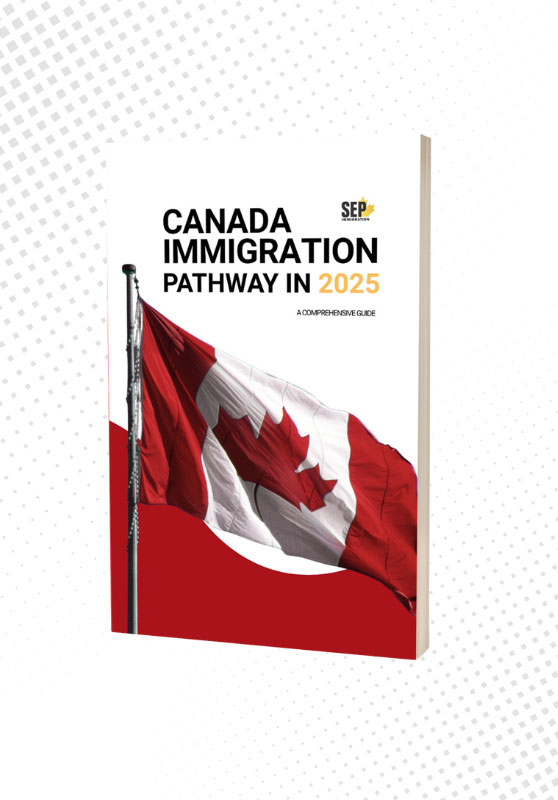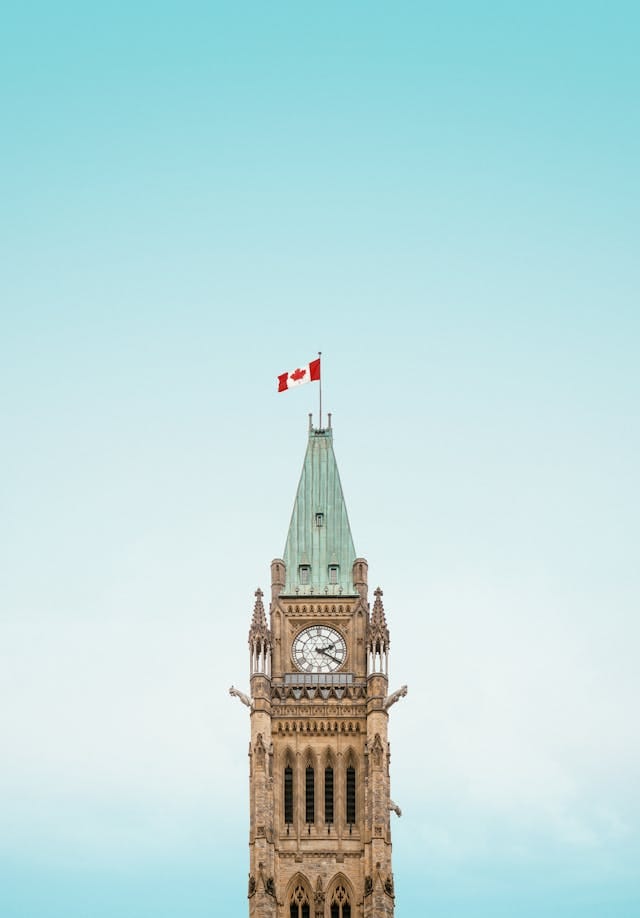As a newcomer to Canada, understanding the healthcare system is crucial. This guide provides an in-depth look at the healthcare services available across provinces and territories, including eligibility requirements, how to obtain a health card, and the steps to access medical services.
We’ll also cover finding a family doctor, accessing emergency care, and understanding coverage for prescription drugs and dental, vision, and mental health services. Additionally, we’ll explore private health insurance options to supplement public healthcare. With this knowledge, you can confidently access the healthcare services you need as you settle into your new life in Canada.
Each province and territory in Canada has its own healthcare system with unique coverage and services. While basic medical care is covered, the specifics can vary, such as the waiting periods for new residents to become eligible for public health insurance.
Newcomers should also be aware that not all services, like prescription medications, dental care, and vision care, are covered under public health plans, making private health insurance an important consideration to bridge these gaps.
Book Free Assessment
Table of Contents
ToggleWhich Province Has the Best Healthcare in Canada?
Canada’s healthcare operates on a universal model funded by taxes, providing most public health services free at the point of use. However, the services covered vary by province and territory, as healthcare falls under regional jurisdiction. Each province and territory has specific insurance plans and agreements, making supplemental private insurance a wise choice.
In some provinces, newcomers may face a waiting period of up to three months before they become eligible for public health coverage. During this time, having private health insurance is essential to cover unexpected medical expenses. Additionally, while primary and emergency care are typically covered, services like prescription drugs, physiotherapy, and elective procedures may require out-of-pocket payments or private insurance.
Below is an overview of what each provincial and territorial health care plan covers:
- Alberta (AB): The Alberta Health Care Insurance Plan (AHCIP) covers medically necessary services, some dental and oral surgeries, and specific surgeries like bariatric and transgender surgeries.
- British Columbia (BC): The Medical Services Plan (MSP) includes physician services, medically necessary eye exams, and some orthodontic services.
- Manitoba (MB): Public health insurance covers physician services, surgeries, vision care, chiropractic care, and hospital services.
- New Brunswick (NB): Medicare covers most medically required services, physician fees, and some dental services.
- Newfoundland and Labrador (NL): The Medical Care Plan covers physician visits, surgical procedures, maternity care, and hospital services.
- Northwest Territories (NWT): The NWT Healthcare Plan covers physician services, surgeries, obstetrical care, and necessary hospital services.
- Nova Scotia (NS): Public healthcare includes addiction treatment, continuing care, mental health services, and optometry for specific age groups.
- Nunavut (NU): Coverage includes physician services, surgeries, and hospital care.
- Ontario (ON): The Ontario Health Insurance Plan (OHIP) covers doctor visits, hospital services, and some in-hospital dental surgeries.
- Prince Edward Island (PEI): Public healthcare covers physician services, drug plans, home care, and ambulance services under specific conditions.
- Quebec (QC): The public health insurance plan covers general practitioner services, diagnostic procedures, and specific surgeries.
- Saskatchewan (SK): Coverage includes inpatient and outpatient services, mental health, and addiction treatment.
- Yukon (YU): The Yukon Healthcare Insurance Plan (YHCIP) covers physician services, hospital care, and necessary medical treatments.
Can Canadian Immigrants Get Free Healthcare?
Yes, all Canadian residents, including immigrants, are eligible for public health insurance. However, some provinces require a waiting period of up to three months before newcomers can access free healthcare services.
During this waiting period, it’s crucial for newcomers to have private health insurance to ensure they are covered for any medical emergencies or routine care. Some provinces offer temporary health coverage options, but it’s advisable to secure private insurance to avoid any gaps in healthcare access.
What Do You Need to Get Free Healthcare in Canada?
To access free healthcare in Canada, you must have a health card issued by your province or territory. The process for obtaining a health card varies by region, with some provinces requiring in-person visits and others allowing online applications.
When applying for a health card, you’ll need to provide proof of residency, identification, and in some cases, immigration documents. It’s important to apply as soon as you become eligible to avoid any delays in accessing healthcare services. Remember to renew your health card before its expiration to maintain uninterrupted coverage.
Waiting Periods for Healthcare in Canada
- Alberta: 3 months
- British Columbia: 2 months plus the remainder of the month of arrival
- Manitoba: Up to 3 months
- New Brunswick: 3 months
- Newfoundland and Labrador: No waiting period
- Northwest Territories: 3 months
- Nova Scotia: 3 months
- Nunavut: 3 months
- Ontario: No waiting period
- Prince Edward Island: 3 months
- Quebec: Up to 3 months
- Saskatchewan: 3 months
- Yukon: 3 months
Where Can I Find Medical Services in My Area?
Each province and territory has online resources to help you locate nearby healthcare providers. You can also use a simple Google search with your postal code to find local services.
Many regions offer centralized online directories or hotlines to connect you with healthcare services, including family doctors, walk-in clinics, and specialists. These tools can help you find providers accepting new patients, making it easier to get the care you need promptly.
How to Get a Family Doctor in Canada
Finding a family doctor, also known as a general practitioner, can be challenging as doctors often limit the number of patients they accept. Start by asking for recommendations from friends, family, or settlement services. Online searches using your postal code can also help you identify clinics accepting new patients.
You can also register with provincial programs designed to match residents with available family doctors. Some provinces offer waiting lists or registries where you can sign up to be notified when a doctor is accepting new patients in your area. This process can take time, so it’s advisable to start your search early.
How Long Do You Have to Live in Canada to Get Free Healthcare?
Health care in Canada is delivered at the provincial and territorial levels, which means eligibility rules for accessing free healthcare vary.
New residents, including permanent residents, are generally required to live in a province for a certain period before they can access free healthcare. This waiting period is a key aspect of health care in Canada and ensures that the system is well-funded and sustainable for all residents.
In most provinces, including Ontario, Alberta, and Quebec, the waiting period for health care in Canada is typically three months. During this time, individuals are expected to have private health insurance to cover any medical expenses.
The waiting period can vary slightly, such as in British Columbia, where it’s two months plus the remaining days of the month in which residency was established.
This waiting period is not intended to restrict access but rather to manage the influx of new residents and ensure that the provincial health systems can provide the necessary resources.
Each province determines its own eligibility criteria, and these are usually based on the Canada Health Act’s guidelines. The act ensures that health care in Canada is available to all eligible residents on uniform terms without discrimination.
It is important to note that some provinces, like Newfoundland and Labrador, do not impose any waiting period for new residents. This makes it one of the few places in Canada where healthcare can be accessed immediately after establishing residency.
Other provinces and territories enforce the three-month waiting period, making it crucial for newcomers to plan for private health insurance coverage during this time.
Apply for a Provincial Health Insurance Card
To access health care in Canada, one of the first steps new residents must take is applying for a provincial health insurance card. This card is vital as it proves that the individual is registered with the provincial health system and eligible for healthcare services. Each province has its own process for applying, and this process can vary significantly depending on where a person lives.
For example, in Ontario, residents must visit a Service Ontario location to apply in person. They need to provide proof of residency, immigration status, and identity, such as a driver’s license or permanent resident card. In British Columbia, residents can apply for the Medical Services Plan (MSP) either online or by mail, making it a slightly more flexible process.
Health care in Canada is structured to ensure that all eligible residents receive access to medical services. However, applying for a health insurance card must be done immediately after establishing residency to avoid any delays in coverage. Processing times can vary, and it’s advisable to apply as soon as possible.
Additionally, the documents required during the application process can include proof of residency, such as a rental agreement or utility bill, along with government-issued ID. It’s important to ensure that all documentation is accurate and up-to-date to prevent any processing issues.
FAQs
How Much Does Universal Healthcare Cost per Person in Canada?
Health care in Canada is funded through a combination of federal and provincial taxes, with total health spending expected to reach $344 billion in 2023. This translates to approximately $8,740 per Canadian.
This cost covers a range of services, from doctor visits and hospital care to surgeries and essential medical services. Universal healthcare in Canada represents 12.1% of the country’s GDP, making it a significant investment in the health and well-being of Canadian residents.
The cost of health care in Canada varies depending on the province, with some provinces contributing more per person than others.
However, it is important to note that while basic healthcare is covered, certain services, such as dental care and prescription medications, are often not included. These additional services may be covered by private health insurance or government programs targeting specific populations, such as low-income families or seniors.
One of the reasons Canada’s healthcare system is so costly is the comprehensive nature of the services provided. Health care in Canada covers everything from preventative care to major surgeries, ensuring that residents receive the medical attention they need without facing significant out-of-pocket expenses.
The system is designed to be equitable, with funding distributed based on the needs of each province and territory
What Services Are Covered by Medicare?
Medicare in Canada covers a wide range of medically necessary services, including hospital stays, physician services, and diagnostic tests. Health care in Canada is structured to ensure that essential services are accessible to all eligible residents without financial barriers. However, what constitutes “medically necessary” can vary slightly between provinces.
For instance, some provinces may cover additional services, such as physiotherapy or mental health counseling, while others do not.
Dental care, optometry, and prescription medications are typically not covered under public health insurance plans. Many Canadians rely on employer-provided health plans or private insurance to cover these additional services.
Why Does Canada Have a Waiting Period for Healthcare?
The waiting period for health care in Canada exists primarily to manage the inflow of new residents and ensure that the healthcare system remains sustainable.
By imposing a waiting period, provinces can prevent potential abuse of the system by individuals who might move to a province solely to access free healthcare services.
Do I Qualify for Medicare As Soon as I Arrive as a New Permanent Resident of Canada?
No, most new permanent residents must wait up to three months before qualifying for Medicare. During this time, it’s necessary to have private health insurance to cover any medical expenses.
Do Temporary Residents Qualify for Medicare, for Example, Work Permit or Study Permit Holders?
Temporary residents may qualify for public healthcare, but this depends on the province. In some provinces, like Ontario, temporary residents can access Medicare, while other provinces require private insurance.
Can I Access Medicare as a Visitor to Canada?
No, visitors to Canada are not eligible for public healthcare. Private health insurance is necessary for visitors to cover any medical expenses during their stay.
What Are My Options as a Permanent Resident, Landing in a Province With a Medicare Waiting Period?
During the waiting period, permanent residents should obtain private health insurance to cover medical costs until Medicare begins.
Is Mental Health Included in Healthcare in Canada?
As long as your psychiatrist works in a hospital, it’s probably covered. Most public healthcare systems cover mental health services offered in hospitals. But, to get therapy from a private psychologist, you will need to spend money from your own pocket.
Dental and Eye Care: Seeking Additional Support
In most cases, dental and eye care aren’t supported by your public health insurance. The routine checkups you might need, well, have to be paid out of your own pocket. But, certain provinces have limited coverage for children and seniors. You should still keep in mind that most Canadians use employer-provided insurance for these costs.
When Coming to Canada as a New Permanent Resident, Should I Have Interim Medical Insurance Before I Travel, or Is It OK to Get It When I Arrive?
It’s highly recommended to purchase private insurance before traveling to Canada to ensure immediate coverage upon arrival.
Are All Interim Medical Plans the Same?
No, interim medical plans vary in terms of coverage and cost. It’s important to compare plans and choose one that best meets your needs.
Do I Need to Apply for Medicare, or Do I Get It Automatically if I Qualify?
You must apply for Medicare through your provincial health authority. It is not automatically granted.
What if I Have an Existing Condition, Am I Covered by Medicare?
Once your Medicare coverage begins, you are covered for pre-existing conditions. However, during the waiting period, private insurance may not cover these conditions.
Accessing Immediate Medical Attention in Canada
For emergencies, visit the nearest hospital’s emergency department. Bring your health card and ID, and you will be directed based on the urgency of your condition.
If it’s a non-life-threatening issue but still urgent, consider going to a walk-in clinic or using tele-health services available in some provinces. These options can provide quicker access to care when emergency rooms are crowded or for less severe conditions. Always keep your health card and a list of any medications you are taking on hand for these visits.
Does Canadian Health Insurance Cover Prescription Drugs?
Prescription drugs are covered during hospital stays, but coverage depends on your province’s public drug plan outside of the hospital. Eligibility and coverage vary, with some provinces providing more extensive coverage than others.
In many provinces, public drug plans primarily cover specific groups, such as seniors, low-income individuals, and those with certain medical conditions. For those not covered by these plans, private health insurance can help offset the cost of prescription medications.
It’s essential to review the drug formulary of your province to understand which medications are covered and explore private insurance options for broader coverage.
What is Not Covered by Canadian Healthcare?
While public healthcare covers many services, it typically does not include dental, vision, or podiatry. Check your provincial coverage to understand what is and isn’t included.
Some provinces offer limited coverage for dental, vision, and podiatry services for specific groups, like children, seniors, or those on social assistance.
For comprehensive care in these areas, many residents rely on private health insurance plans that cover routine dental check-ups, eye exams, glasses, and foot care. It’s advisable to explore these plans to ensure you have access to the full range of healthcare services you may need.
Is Mental Health Care Included in Canada’s Healthcare?
Yes, mental health care is included, with resources available through doctors, hospitals, crisis lines, and community organizations. Settlement services can also connect newcomers with mental health support in their communities.
Many provinces offer mental health services through public healthcare, including counseling, psychiatric care, and addiction services. However, coverage for services like therapy or counseling outside of hospitals may be limited, so some individuals may need private insurance to fully access these services.
Community organizations often provide additional support, such as group therapy or workshops, which can be valuable for newcomers adjusting to a new environment.
Can You Get Private Healthcare in Canada?
Private health insurance is advisable for newcomers, especially during the waiting period for public health coverage or for services not covered by public insurance, such as dental care and prescription drugs.
SEP Immigration: Supporting Your Journey to Canada
Navigating the complexities of healthcare is just one aspect of settling into a new country. At SEP Immigration, we specialize in helping newcomers with all their immigration needs, from securing visas to finding the right resources for a smooth transition. Let us assist you in making Canada your new home with confidence and peace of mind.
Private health insurance plans can bridge the gap during the initial waiting period and cover additional services like dental, vision, and alternative therapies. These plans vary in coverage and cost, so it’s important to compare options to find one that fits your needs.
SEP Immigration is here to provide comprehensive support throughout your move to Canada, ensuring you’re well-prepared for every step of the process. Our services go beyond just visa applications; we guide you through settling in, including accessing healthcare and other essential services.








